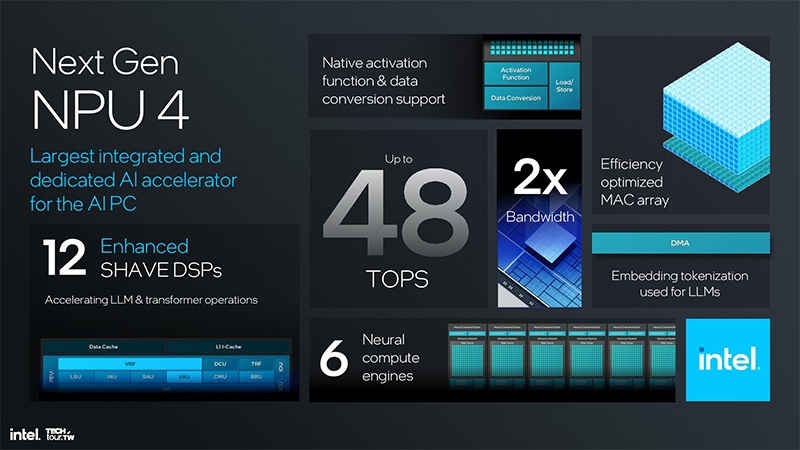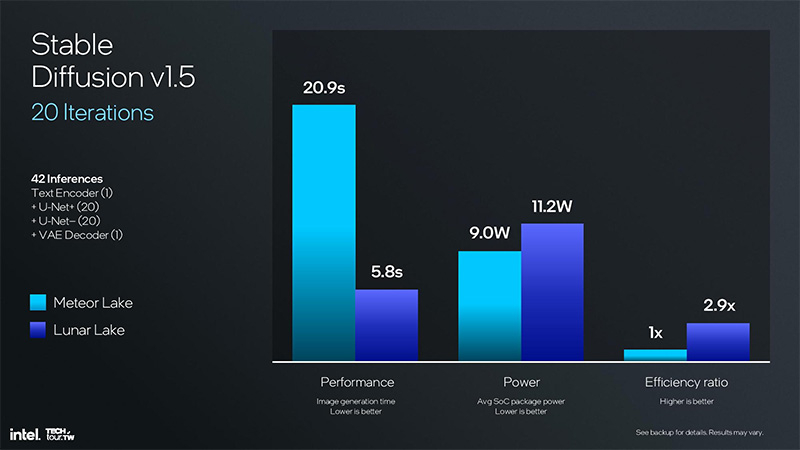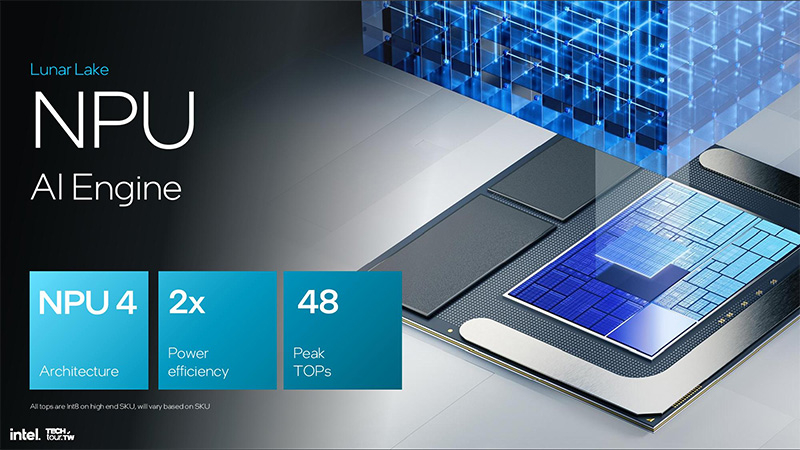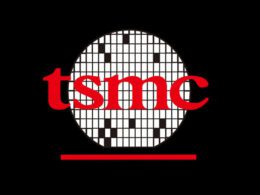Intel unveiled mobile processors referred to as Lunar Lake, boasting a 40% enhanced energy efficiency and a tri-fold computational power increase in its Artificial Intelligence (AI) co-processor, NPU 4, in comparison to its predecessor, Meteor Lake. Lunar Lake’s amplified NPU performance, amounting up to 48 TOPS (Trillion Operations Per Second), could potentially transform the laptop industry, making it compliant with Microsoft’s stringent specifications for Copilot+ PC.
For the uninitiated, Microsoft’s definition of a Copilot+ PC includes a minimum NPU performance of 40 TOPS. In essence, processors exceeding this performance cut-off would have the ability to utilize the AI-based functionalities of the Windows operating system, predominantly the much-debated Recall function.
Interestingly, Lunar Lake’s NPU unit surpasses the stipulated benchmark, offering better performance than the Meteor Lake processors, which clock in at 11.5 TOPS. To achieve this leap, Intel incorporated additional pipelines into the NPU of their new processor, now totaling six instead of the previous two, while concurrently augmenting frequencies. However, structurally, the NPU continues to be based on the 2018-released Movidius Myriad X architecture.

Despite the considerable progress, Intel’s NPU does not conquer the market in terms of highest productivity. Although Lunar Lake outperforms Qualcomm Snapdragon X Elite’s 45 TOPS, it falls short against Ryzen AI 300 processors’ 50 TOPS.
Nonetheless, Intel adds an extra layer to the equation by highlighting the potential use of XMX engines from the Xe2 graphic core for AI tasks. Independently from NPU, they can provide up to 67 TOPS performance. Inclusive of the processing cores’ power, Intel quotes an overall AI-performance of 120 TOPS.
To illustrate the AI capabilities of Lunar Lake practically, Intel measured the time required to conduct 20 iterations in Stable Diffusion. Astonishingly, the new processor completed the task four times faster than Meteor Lake while consuming just a quarter more energy.

Furthermore, Intel pointed out that while competitors are merely preparing to enter the AI-supported PC market, it has already begun large-scale deliveries of such solutions. The Meteor Lake processors with NPU were released last year, and its successors, the Lunar Lake processors, are set to commence shipments in the third quarter. Intel anticipates that these will be employed in over 80 different laptop models from 20 manufacturers. Consequently, Intel plans to introduce over 40 million Core Ultra series processors to the market this year, which will include devices from the Lunar Lake family.





